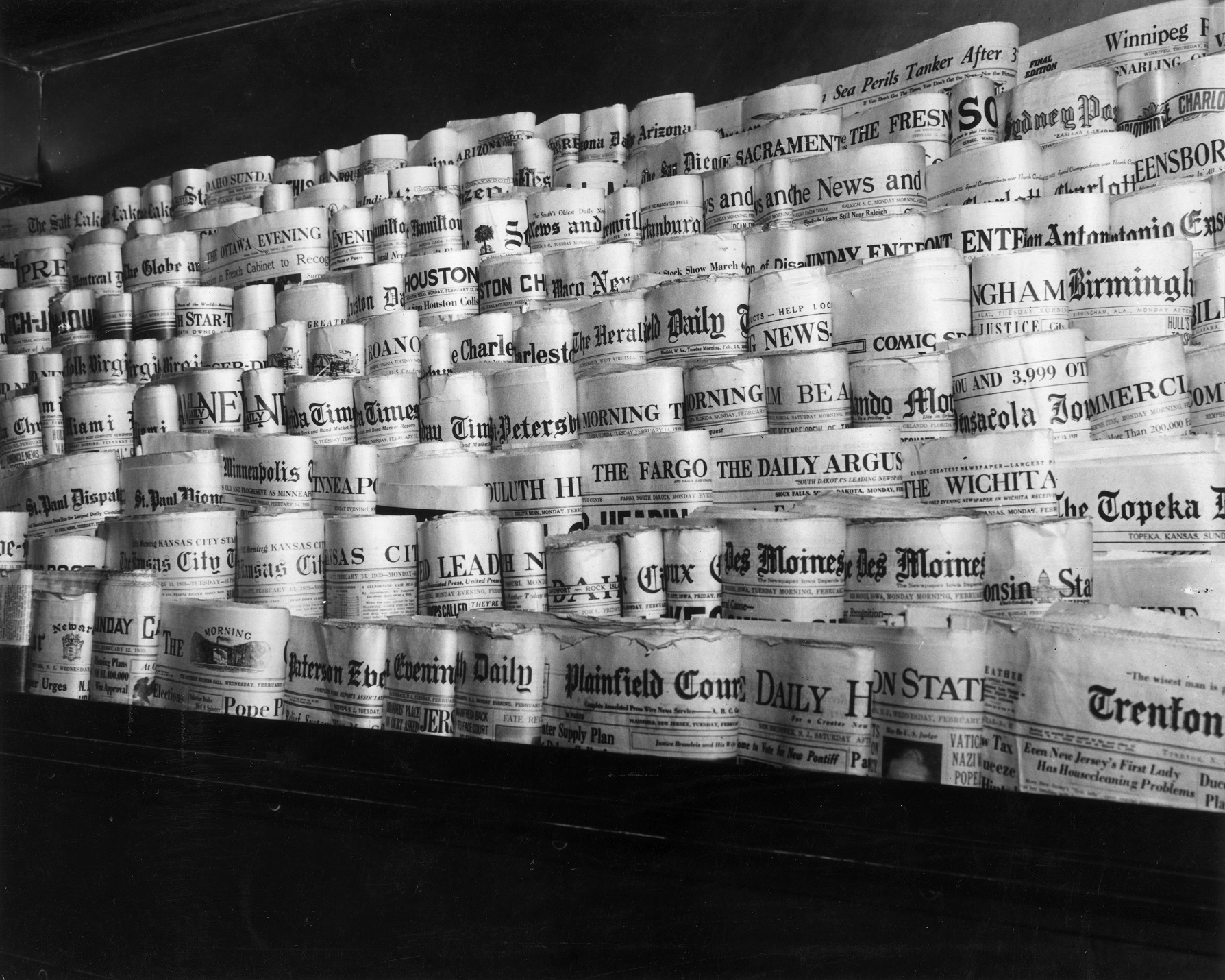ما الاتجاهات الرئيسية لمهنة الصحافة على المدى القريب؟ وما الفرص التي تلوح في الأفق؟ ذلك هو السؤال الرئيسي الذي يسعى التقرير السنوي لمعهد رويترز بالشراكة مع جامعة أوكسفورد حول الصحافة والإعلام والتوجهات التكنولوجية للإجابة عليه.
التقرير المذكور يستند على دراسة استقصائية واسعة النطاق شملت 303 من قادة المؤسسات الإعلامية في 53 دولة، ويستكشف آخر التطورات في مجال الصحافة وأولوياتها في العام المقبل.
وقد أعد التقرير الذي نشر في العاشر من يناير الحالي الباحث بالمعهد نيك نيومان وهو صحفي رقمي سبق له العمل في موقع بي بي سي.
أبرز مؤشرات ومحطات التقرير
1- الناشرون متخوفون وأقل ثقة فيما يتصل بمستقبل مؤسساتهم في العام 2023 مقارنة بما كان عليه الوضع العام الماضي. وتنبع أبرز المخاوف من ارتفاع تكاليف الإنتاج، وانخفاض اهتمام المعلنين وتراجع الاشتراكات. وحتى المتفائل من هؤلاء الناشرين يتوقع تسريح المزيد من العاملين، إلى جانب التوجه لتدابير أخرى تتعلق بخفض التكاليف.
2- معظم الناشرين (72%) قلقون مما يعرف بظاهرة تجنب الأخبار( عدم اهتمام الجمهور بما تنشره وسائل الإعلام) خاصة ما يتعلق بالتغطيات الصحفية للأحداث الهامة غير السارة، مثل الحرب الروسية على أوكرانيا، التغير المناخي، وتخطط هذه الفئة من الناشرين لمواجهة هذه الظاهرة عبر تقديم محتوى يركز على ما يفسر الأحداث، مثل تقارير المعلومات ومواد الأسئلة والأجوبة، وإنتاج المزيد من القصص الإخبارية الإيجابية.
3- أعرب العديد من الناشرين عن نيتهم في التركيز على المداخيل التي يمكن أن تتحقق عبر الاشتراكات. 80% من هؤلاء قالوا إن ذلك سيكون من أولوياتهم، قبل التفكير في الإعلانات، ويتوقع حوالي 68% من هؤلاء نموا في الدخل المتوقع من الاشتراكات والمحتوى المدفوع له.
4- يعتقد بعض الناشرين أنه يمكن الحصول على عائدات كبيرة من شركات التكنولوجيا الكبرى مقابل الترخيص بنشر المحتوى.
5- يشعر العديد من المشاركين (54%) بالقلق من التشريعات المتوقع صدورها هذا العام لتقييد ما يسمى بالمحتوى الضار على وسائل التواصل الاجتماعي. ويقول هؤلاء إن هذه القواعد الجديدة تصعب الأمر على الصحفيين وعلى المؤسسات الإعلامية الإخبارية، خاصة ما يتصل بنشر الأخبار التي لا ترغب الحكومات بنشرها.
6- يقول معظم الناشرين إنهم سيعطون اهتماما أقل لفيسبوك وتويتر في 2023، وسيبذلون المزيد من الجهد في العمل مع المنصات الأكثر شهرة لدى الشباب مثل تيك توك وإنستغرام ويوتيوب.
وتعكس زيادة الاهتمام بمنصة تيك توك مقارنة بالعام الماضي الرغبة في السعي لكسب الفئة العمرية أقل من 25 عاما، بالرغم من المخاوف المتعلقة بمسائل مثل تحقيق الدخل، وأمن البيانات، والآثار المترتبة لملكية الصين لمنصة تيك توك.
7- الحديث عن الانهيار المحتمل لتويتر بعد أن صار في ملكية أيلون ماسك، يلفت الانتباه لأهمية المنصة للصحفيين؛ إذ يقول حوالي 50% من المستطلعة آراؤهم إن الانهيار المحتمل للمنصة أو إضعافها سيكون فألا سيئا للصحافة.
8- نظرا لأن تأثيرات أزمة التغيير المناخي أصبحت أكثر وضوحا، فإن وسائل الإعلام ستعيد التفكير في كيفية تغطية هذا الموضوع المعقد. وقد أفاد نصف المشاركين في الاستطلاع أن مؤسساتهم شكلت فِرَقا متخصصة لتغطية الظاهرة.
9- وفيما يتصل بالابتكار يقول الناشرون إنهم سيوجهون المزيد من الموارد لإنتاج البودكاست والمواد الصوتية الرقمية الأخرى. إلى جانب الرسائل الإخبارية عبر البريد الإلكتروني، وقد أثبتت هذه المنتجات فعاليتها فيما يتصل بزيادة ولاء الجمهور للمؤسسة.
10- تعمل العديد من المؤسسات الإعلامية وبهدوء على دمج الذكاء الاصطناعي والاستفادة من إمكانياته، خاصة التطبيقات الجديدة مثل تشات جي بي تي.
11- ستتخلى العديد من المؤسسات الإعلامية عن الصحافة المطبوعة، وذلك بسبب ارتفاع تكاليف الطباعة وضعف شبكات توزيع الصحف، ومن المتوقع تحول الكثير من المؤسسات الصحفية البارزة إلى الأونلاين فقط.
12- ستشهد العديد من المحطات التلفزيونية الإخبارية عمليات تسريح للصحفيين وذلك بسبب انخفاض أعداد المشاهدين وآثاره الاقتصادية، وازدياد وسائل البث المباشر عبر المنصات.
13- توقع معهد رويترز في تقرير العام الماضي حدوث ما يمكن تسميته بالانفجار في التوجه نحو سرد القصص الإخبارية بواسطة الفيديو القصير عبر منصات التواصل الاجتماعي، ويتوقع في هذا العام تبَنِّي العديد من الناشرين لذلك الأسلوب، ولكن مع زيادة في مدة الفيديو للحصول على عائدات مستدامة.








































